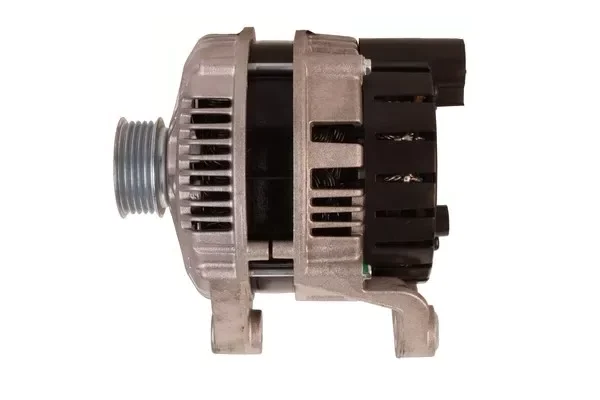Understanding Fixed Alternators Traditional Charging System
This article explores understanding what are fixed alternators how it operates, and its benefits and limitations. In the realm of automotive engineering, alternators play a crucial role in ensuring that a vehicle’s electrical systems run smoothly. Among the various types of alternators, the fixed alternator has been a mainstay for decades.
What is a Alternator?
A fixed alternator, also known as a conventional or traditional alternator, is an electrical generator that converts mechanical energy from the engine into electrical energy to power a vehicle’s electrical systems and charge the battery. Unlike modern smart alternators, a fixed alternator maintains a constant voltage output, typically around 14 volts, regardless of the vehicle’s varying electrical demands.
How Does a Alternator Work?
A fixed alternator operates using the following components:
- Rotor: A rotating magnetic field that induces an electrical current.
- Stator: A stationary set of wire coils where the electrical current is generated.
- Voltage Regulator: Maintains a consistent output voltage by adjusting the current supplied to the rotor.
- Diode Rectifier: Converts the alternating current (AC) generated in the stator to direct current (DC) suitable for the vehicle’s electrical systems.
The fixed alternator is driven by a belt connected to the engine’s crankshaft. As the engine runs, it turns the rotor inside the alternator, generating electricity. The voltage regulator ensures that the output remains steady, regardless of the engine speed or electrical load.
Benefits of Alternator
1. Simplicity and Reliability
Fixed alternators are straightforward in design, making them highly reliable and easy to maintain. Their simple construction reduces the likelihood of failures, ensuring consistent performance.
2. Cost-Effectiveness
Due to their long history and widespread use, fixed alternators are generally less expensive to manufacture and replace compared to modern smart alternators.
3. Adequate for Basic Electrical Systems
For vehicles with minimal electrical demands, a fixed alternator provides sufficient power to keep the battery charged and the electrical systems functioning.
Limitations of Fixed Alternators
1. Inefficiency at Varying Loads
Fixed alternators maintain a constant voltage output, which can lead to inefficiencies. They do not adjust to the vehicle’s varying electrical demands, potentially wasting energy or failing to provide adequate power under high loads.
2. Reduced Fuel Efficiency
Since fixed alternators do not optimize their output based on the engine’s needs, they can place unnecessary load on the engine, leading to lower fuel efficiency.
3. Limited Battery Management
Fixed alternators do not communicate with the vehicle’s battery management system, which can result in suboptimal charging and reduced battery life.
Applications of Alternators
Despite their limitations, fixed alternators are still widely used in many vehicles, particularly older models and those with basic electrical requirements. They are well-suited for vehicles that do not have extensive electrical systems or high power demands.
Transition to Modern Systems
As automotive technology continues to evolve, many manufacturers are transitioning to smart alternators to improve efficiency and performance. However, fixed alternators remain a reliable and cost-effective solution for many applications.
Key Features of Fixed Alternators
- Constant Voltage Output: Delivers a steady voltage regardless of the vehicle’s electrical load.
- Simple Design: Easy to maintain and repair.
- Cost-Effective: Generally less expensive than advanced alternators.
- Reliable Performance: Proven track record of reliability and durability.
Alternators have been a cornerstone of automotive charging systems for many years. Their simplicity, reliability, and cost-effectiveness make them suitable for vehicles with basic electrical needs. However, as vehicles become more technologically advanced, the demand for smarter, more efficient charging systems is driving the shift towards modern alternators. Understanding the role and operation of fixed alternators provides valuable insight into the evolution of automotive technology and the continuous pursuit of improved efficiency and performance.
Buying a used VW. Buying used vauxhall, BMW, Jaguar, Ford, Volvo, Range rover, Bentley, Aston Martin, Porsche, Ferrari, Lamborghini, Maserati, Hyundai, Tesla, Honda, Pagani

